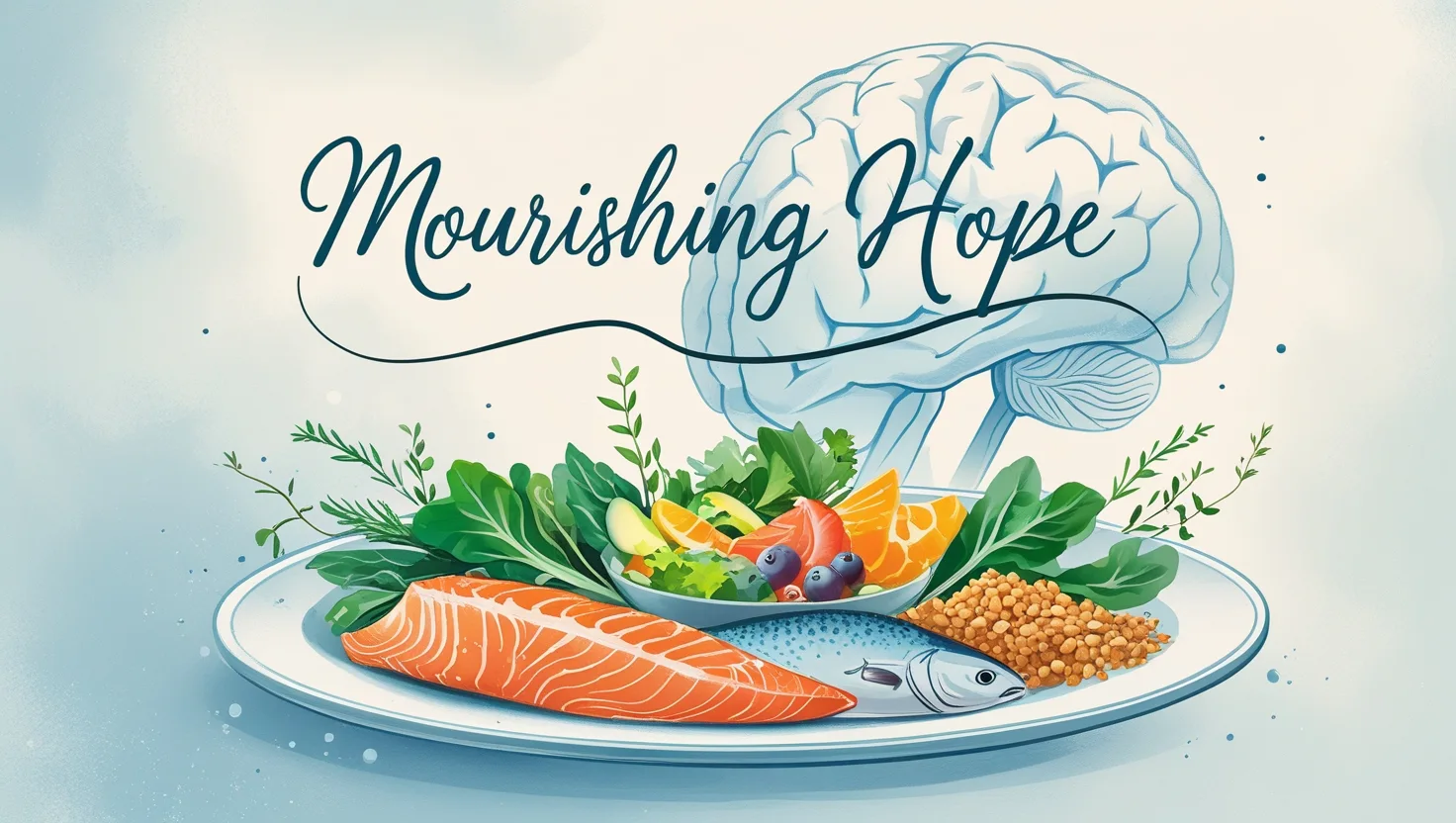I have always been a curious person. That is not “curious: weird” although some may disagree, more “curious: inquisitive”, I like to question everything.
Things I have taken for granted since childhood. Things we all take for granted. Why is the sky blue?, why is the sea green? and why does the toast always fall butter side down? Children are naturally inquisitive. Indeed, as a long suffering parent, I have heard the cry “But why?” countless times. And, “What is a diet for multiple sclerosis symptoms?”
However, as a long-suffering but responsible parent, I have attempted to answer all these annoying questions.
The truth is: there are no annoying questions, there are no stupid questions. “Why?” is how children learn and that is a crucial part of their development.
But, I digress, childhood development is not the topic of this article. A diet for multiple sclerosis symptoms is and we should continue this train of thought.
The best diet for MS management often includes anti-inflammatory foods, healthy fats, and plenty of fruits and vegetables to support overall neurological health.
Table of Contents
ToggleIntroduction: The Role of Diet in Multiple Sclerosis
When I was first diagnosed with Multiple Sclerosis (MS), I instinctively questioned everything. Why did this happen to me? How could my own immune system turn against me?
However, I never questioned the role of diet in multiple sclerosis. How wrong was I?
I recall that I started by asking “Why are we warm-blooded?” This led to my introduction to mitochondria. These are organelles contained in nearly every cell of our bodies, They are the components that generate heat and energy.
This curiosity led to me finding Dr Terry Wahls and her book: The Wahls Protocol. It introduced me to mitochondria and the vital role they play in our health.
They convert the sugars from the food we eat, with oxygen from the air we breathe into heat and energy. Her hypothesis is that the failure of our mitochondria to function optimally, can lead to the development of multiple sclerosis.
This has led me to believe that diet can be transformative in managing our MS symptoms. Ergo, I have adopted a Diet for multiple sclerosis symptoms.
Why Nutrition Matters in MS
MS Nutrition and the Brain-Gut Connection
The central nervous system(CNS) and the gut microbiota have an intimate relationship. MS Nutrition isn’t just about nourishing the body. It is about feeding our mitochondria and our brain. According to a study published in Frontiers in Immunology, dysbiosis (imbalanced gut bacteria) can exacerbate MS symptoms.
Nutrient-dense foods help maintain gut health which, in turn, improves the functioning of our immune system. Consuming whole foods that contain plenty of antioxidants and anti-inflammatory compounds can minimise oxidative stress which is known to worsen MS.
A Diet for multiple sclerosis symptoms can provide the essential nutrients you need to battle MS.
Mitochondria, Inflammation and Dietary Influence
My curiosity about warm-blooded mammals, aided by the work of Dr Terry Wahls on the explanation of mitochondrial function led me to realise that mitochondrial dysfunction plays a significant role in MS development.
Dysfunctional mitochondria cannot fuel the brain effectively, leading to neurodegeneration Nutrients like omega-3 fatty acids, B-vitamins, and coenzyme Q10 can help support mitochondrial function.
This realisation was a turning point. I adopted a more nutrient-dense, anti-inflammatory diet for MS and saw a noticeable difference in energy levels, cognitive clarity, and motor function.
The Wahls Protocol: A Transformative Approach
The Wahls Protocol MS is a science-based dietary programme that restored the health of the doctor. She had been bed-bound for many years and her dietary approach led to the complete reversal of all her MS symptoms.
Key Principles of the Wahls Protocol
- An emphasis on nutrient-dense vegetables. Healthy and colourful (eat the rainbow)
- Eliminate gluten and dairy.
- Choosing grass-fed meat and organ meat.
- Fermented foods for gut health.
My experiment with the Wahls Protocol MS confirmed my thoughts that a Diet for multiple sclerosis symptoms was the way to go with MS nutrition.
Many studies suggest that a Low-Saturated Fat Diet for MS may help reduce inflammation and potentially slow disease progression.
My Experience with the Wahls Protocol
I was, quite naturally, very sceptical of the ability of diet to alleviate my neurological problems: brain fog, vision loss and concentration.
But, I was willing to try. So, I followed the Wahls Protocol, to the letter.It wasn’t easy. Dr Wahls lives in America and her supermarkets stock very different foods to those that I can find in the UK.
I persevered and the results were ground-breaking. My brain fog receded and I could focus on my work and had energy that I had forgotten about.
In a 2017 study (Journal of Alternative and Complementary Medicine), participants on the Wahls diet experienced reduced fatigue and improved quality of life. These findings echoed my own journey.
I was amazed and could fully appreciate why Dr Wahls could described her approach as revolutionary.
My brief foray with MS nutrition backed up Dr Wahls belief that a Diet for multiple sclerosis symptoms could be transformative, was a real eye-opener.
When considering a diet for multiple sclerosis symptoms, there are two diets frequently mooted: the Swank Diet and the Wahls Protocol.
These are, by no means, the only diets intended to be beneficial for multiple sclerosis, nor would I proffer an opinion on the best Diet for multiple sclerosis symptoms.
Any diet will be a matter of personal preference, A diet that works miracles for your best friend, may do nothing for you.
We offer you the Swank diet and the Wahls Protocol MS to give an illustration of two popular diet plans that you may wish to consider.
Emerging research highlights a strong connection between diet and Multiple Sclerosis, suggesting that nutritional choices can influence symptom management and overall disease progression.
Swank Diet vs. Wahls Protocol
Swank Diet:
- A low-saturated fat diet similar to the one my mother has touted for over 50 years.
- Allows whole-grains, low-fat dairy products and lean proteins.
Wahls Protocol:
- Anti-inflammatory foods for MS.
- Eliminates grains and dairy.
- Emphasises nutrient-dense vegetables.
A recent paper titled Impact of the Swank and Wahls elimination dietary interventions found both diets improved fatigue and quality of life scores in people with MS.
My biggest problem with Wahls Protocol is the need to eliminate gluten. This means no bread, biscuits or cakes. It also means you must be careful with sauces and gravy used in other recipes.
It is possible, but it needs a huge mindset change and a whole-new shopping experience. However, if you can achieve these lifestyle changes the benefits are truly eye-opening.
The influence of diet in Multiple Sclerosis is becoming increasingly evident, with certain dietary patterns showing potential to improve symptoms and enhance quality of life.
The OMS Program and Overcoming MS Diet
The overcoming MS diet advocates a plant-based, low-fat, pescatarian approach, along with mindfulness, exercise, and vitamin D supplementation.
I have already made my views on vitamin supplementation known. Your body can readily produce vitamin D when your skin is exposed to sunlight.
So, rather than adopting a diet of vitamin pills, I should move to the Mediterranean where reliable sun is more plentiful. It is also a prospect that appeals to me immensely.
The OMS model is a very holistic method of combining physical and mental health.
The importance of diet for people with MS lies in its potential to reduce inflammation, support brain health, and improve overall well-being.
Foods to Avoid with MS
Inflammatory and Processed Foods
The link between diet and inflammation in MS is well-documented.
Eating processed food, consuming trans fats and using refined sugars contribute to systemic inflammation. Higher Non-processed Red Meat Consumption has been associated with worsened MS outcomes, highlighting the need to limit such intake.
To manage your condition, the foods to avoid with MS are:
- Processed meats
- Fried foods
- Refined sugars and flours
- Artificial additives and sweeteners
Systemic inflammation is actually a normal immune system response to injury or illness. It is a normal part of the healing process. It could be a reaction to a foreign body, usually a germ, being present in your system.
Systemic inflammation results in the release of pro-inflammatory cytokines from immune-related cells.
Gluten, Dairy, and Eggs
One of the main tenets of the Wahls Protocol MS is the removal of gluten, dairy and eggs from the diet. However, as I recall. Dr Wahls did not stipulate the removal; of eggs as part of her research. She avoided eggs because she had an unrelated allergy to them.
One of the reasons to avoid dairy is that you are not a young bovine. Additionally, milk is rich in growth hormones and as an adult this will cause you to age prematurely.
Multiple Sclerosis and Vitamin D
Vitamin D has long been discussed as a contributing factor in the development of MS. A deficiency of vitamin D is considered to be a risk-factor for both the onset and progression of multiple sclerosis.
Safe sun-exposure is the best way to maintain adequate vitamin D levels. Vitamin D supplements can help but supplements provide synthetic vitamins, not nearly as good as natural production.
The relationship between Multiple sclerosis and vitamin D may seem unlikely, but cases of multiple sclerosis in Mediterranean countries are rare.
Foods rich in vitamin D:
- Fatty fish (salmon, sardines)
- Fortified plant-based milks
- Mushrooms grown in natural sunlight
Supplementation is often needed, in regions with low sunlight Like Scotland, where I reside. Discuss your vitamin D levels with your healthcare professional.
Daily Dietary Recommendations for MS
- Vegetables: Aim for 6-9 cups per day
- Fruits: 1-2 servings, focusing on berries
- Healthy Fats: Avocados, nuts, olive oil
- Proteins: Grass-fed meats, wild-caught fish, legumes (if tolerated)
- Whole Foods: Avoid processed items
- Hydration: Minimum 2 litres of water daily
The importance of diet in managing multiple sclerosis symptoms cannot be stated strongly enough.
I was very adept at physics when I was at school. I wish I had taken more interest in biology. I may have learned the importance of feeding your mitochondria much earlier.
Sociodemogrohic and clinical characteristics of diet adherence and relationships with Diet quality studies have shown that individuals with higher educational levels, better health literacy, and strong support networks are more likely to adhere to beneficial diets.
Furthermore, individuals with higher social status are more likely to have diets of fresh produce and be less reliant on cheap processed foods.
By understanding these factors, we can improve dietary adherence and, ultimately, disease resistance. The multiple sclerosis ms diet needs to be practical, personalised, and sustainable.
Above all, learn to love food. It is your best defence against autoimmune disease.
Frequently Asked Questions
Finding a diet for multiple sclerosis symptoms can take a lot of careful analysis. The health benefits of a good diet do not appear overnight. I would suggest you look at the Swank Diet, the Wahls Protocol or the OMS program as a starting point. Any diet must satisfy the MS nutrition needs, containing whole foods, anti-inflammatory foods and absolutely NO processed food.
One should avoid foods that can increase inflammation and worsen MS symptoms. Personally, I try to avoid all processed food although it I often impractical to skip the ubiquitous pinger meals (microwave dinners). Trans fats are especially bad and ironically you can find these in the cheaper vegetable oils. Furthermore, I know that I should avoid gluten but in modern cuisine that is almost impossible. I do, however, manage to find quite acceptable dairy alternatives to milk.
The obvious answer is booze. If you enjoy the occasional tipple, make it VERY occasional. Better still, consider complete abstinence. I find my energy levels much improved since switching to decaffeinated coffee. Fortunately, I have never been keen on sugary drinks.
As a loyal Scot, I would be letting the side down if I didn’t recommend porridge. I used to breakfast on granola, but I found myself choking too often. Clearly, MS has weakened my swallowing muscles. I now enjoy a hearty plate of porridge, dusted with flax seeds, which I can swallow easily.
You could also try a breakfast smoothie, made from leafy greens and berries. Another suggestion might be a chia pudding with coconut milk, topped with nuts and fresh fruit.
Conclusion
In summary, a Diet for multiple sclerosis symptoms should include nutrient-dense MS nutrition. The Wahls protocol MS or the Swank Diet are popular choices you need to be aware of.
A healthy diet is not just about knowing what is good for you. Knowing which foods to avoid with MS is equally important.
Understanding the relationship between Multiple sclerosis and vitamin D will have you scrabbling for the holiday brochures.
I consider myself to be a foodie. I like to eat! Preferably, something that I have never eaten before. This is why I love to travel and the chance to find new cuisines.




